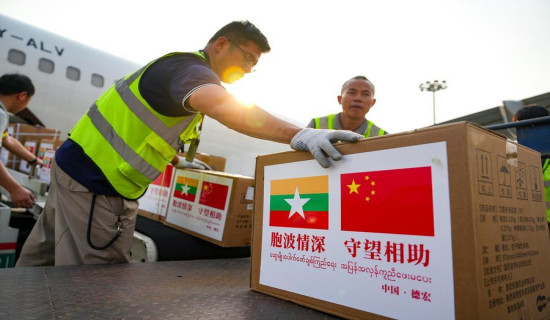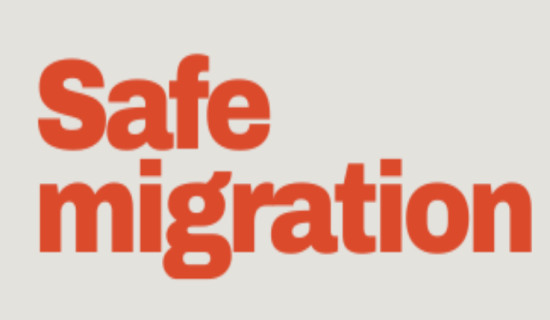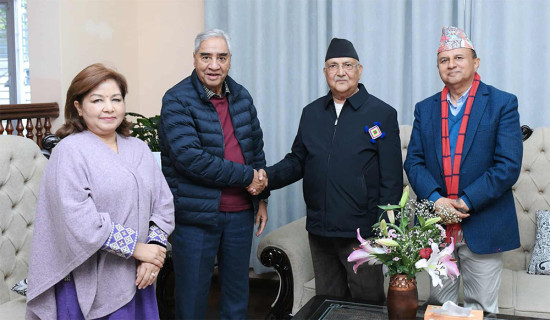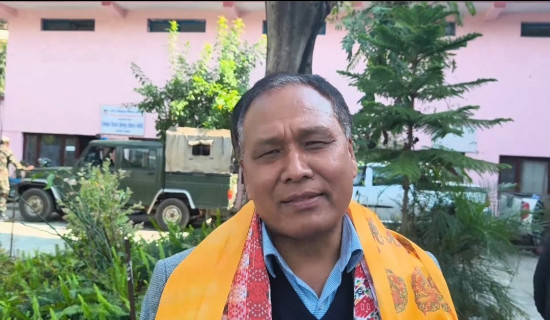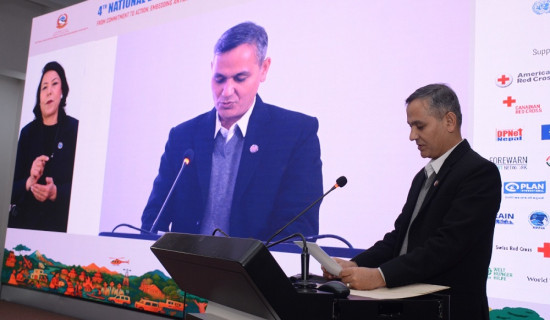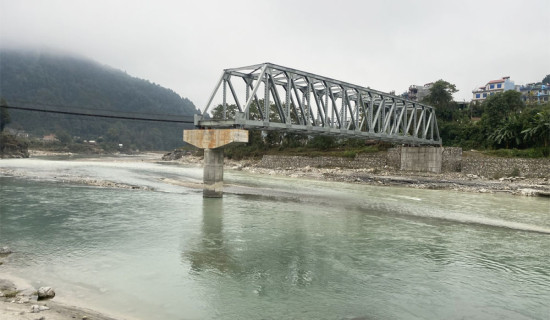- Monday, 22 December 2025
Getting it Right: The Bottom-Up Approach
Prasan Rai
As we now stand, there are so many individuals in the world who are advocating for human rights on different platforms. There are a plethora of organizations raising their voices against rights violations and demanding equality, accessibility, non-discrimination, and equitable policies. Some of them might have achieved these paradoxical goals that they have set for themselves and their organizations, and some of them might have achieved them just to fit their perspective. Many of them would have subject matters to be proud of, like preventing violations of the rights of individuals through their efforts and initiative. The success or failure of their initiative is a different subject matter. Nonetheless, standing at the long line of the Department of Passport Office a few weeks ago, I met plenty of individuals who had testimony of violating their rights by themselves.
A personal encounter: Tension at Department of passports
On June 14, I decided to get my passport for future purposes. I anticipated having many things to do after completing my bachelor's degree. So, I decided it would be better to get my passport now while I had free time. So, I filled out all the online forms, made an online payment of Rs 12,000, and booked my date for June 14 with the Department of Passports, Tripureshwor. I was a bit late, as all the people had already entered the building when I reached there. I got information from one of the security guards that those who had made online payments didn’t have to fill out a payment slip form. Moreover, I didn’t have to stand in an extra line to make my payment for the passport services.
As I stood in line, a fragile looking, slim female stood before me. She was giving me a friendly vibe. I could see a gentle smile on her face, as if she were welcoming me to start a conversation. So, I asked her, “Are you making your passport for the first time?” With a gentle smile, she said “yes” and added, “What about you?”. I replied, “Me too." She looked at my hand and asked, “Where is your payment slip form? " I answered her everything regarding how I filled out the form online and made an online payment. I also told her about the privilege I was having of not standing in an extra line for fee payment because of this act of mine. She looked at me and said, “You must be educated so you can do it. People like me, who are not educated, cannot do those processes by ourselves. You filled out your own form, but I had to pay Rs 350 to one of the cybers to fill out my form.” I became curious that a girl who was nearly the same age as me in demeanor was telling me that she was uneducated. I thought maybe she was here from the rural part of Nepal, probably from rural hilly regions far from Kathmandu.
However, to my surprise, when I asked her about herself, I found that she is only 22 years old and is from Banepa, only some kilometers away from Kathmandu. She was not able to get her education because she had eloped at the very young age of 14. She became a mother at age 16 and has two kids at present. Since then, she has waved goodbye to her educational journey and has been embracing her journey as a mother and a wife. Nonetheless, she told me that it is not a journey that she is happy to be a part of. She was regretting her decision to elope with her husband and was wishing she would have chosen a different path if she could relive the past. I began to suspect that she might have problems in her family and relationship with her husband, so I asked her about it.
I was sad to find that her husband was not supportive of her kids. She was facing financial difficulties in her family, and she wishes to provide good education and care to her children. Her husband was a driver and would only return home occasionally. She had tried to carry out various forms of business but failed to have a decent income in Nepal. Therefore, she was planning to go abroad to earn some money without informing her husband secretly. As I heard her story, as a human rights supporter, I began to list down the rights that she had not been able to access. I started with No. 1: Lack of access to education; No. 2: Deprivation of childhood; and No. 3: Lack of parental guidance and support. No. 4: Right to Social Security, and the list went on.
Personal Choices and Systemic Failures: Unpacking the Intersections
After listing all these rights, I asked myself: Who was the responsible party or person who deprived her of those rights? The first answer I had for myself was none other than the lady herself. It was her decision to elope with her husband at a young age instead of focusing on her studies. As I was thinking about it, I also started to engage in conversation with others. As they started to unfold their stories, I found more and more people who were violating their rights.
Nonetheless, it was their decisions that led to violations of rights. One of the men in his early 30s was telling us his stories of how he had to work extra time in Dubai and the difficulty of working there. Nonetheless, he was there to renew his passport again in order to go abroad once again. Most of the people I talked with had left their studies at an early age for foreign employment. So, were they all themselves to blame for that? On one hand, it seemed easy to point fingers and hold individuals accountable for the choices they made. But on the other hand, a more profound understanding of their context revealed a different narrative. For many, these decisions were less about free will and more about survival, coercion, or a lack of opportunities. I began to analyze the situation of the lady with whom I talked. It seemed like it was all the result of her eloping at a younger age. However, she didn't make her decision to elope at age 14 randomly. It might be due to the pressures and limitations of her socio-economic environment, the lack of access to comprehensive education and information, and perhaps the absence of a supportive family structure, all of which played a role in her choice.
It’s essential to recognize that her deprivation of rights such as education and childhood wasn't solely a result of her personal decision but was heavily influenced by systemic issues. Similarly, the man shared his ordeal of working in harsh conditions in Dubai, yet he was prepared to go back, driven by the desperate need to provide for his family. This highlighted a critical issue: the intersection of personal choices and systemic failings.
It's crucial to acknowledge the broader socio-economic structures that limit individuals' choices. A lack of proper educational facilities, economic opportunities, and social support networks compels many people to make decisions that result in additional denial of their rights. For example, Nepal's poor job market drives many people to seek jobs abroad, despite the known hardships and risks. The government's involvement in providing strong social security, establishing economic opportunities, and ensuring access to great education is critical to changing this image.
The need for Bottom-up Approach
After all these conversations, it was evident that our country needs a bottom-up approach to human rights to address these issues rather than a top down approach. We need community driven initiatives, and they need to be supported by effective government policies to create an environment for individuals so that they can make healthy choices for themselves and their families. Similarly, the caretakers of rights, like government agencies, local level government, NGOs, schools, communities, and others, must work together collaboratively to create a comprehensive support system for individuals to exercise their rights effectively.
This holistic approach will not only empower individuals but also foster a culture of respect for human rights within society. For instance, community efforts to maintain a proper environment at home and in community centers can contribute to individuals' ability to make healthy choices and exercise their rights. Additionally, providing education and resources on human rights and healthy living can further support individuals in making informed decisions for themselves and their families.
In essence, while personal accountability plays a role, it is the responsibility of society and the government to create an enabling environment where individuals can make choices that uphold their rights and dignity. Now is the time to get it right.



